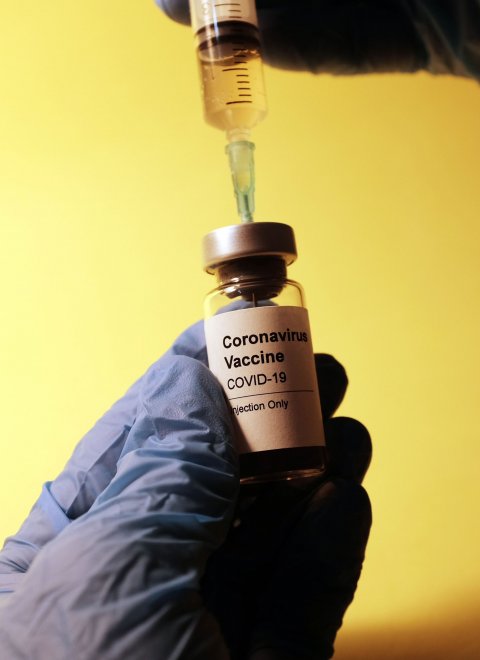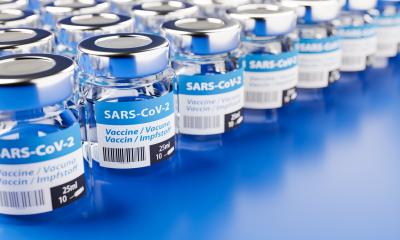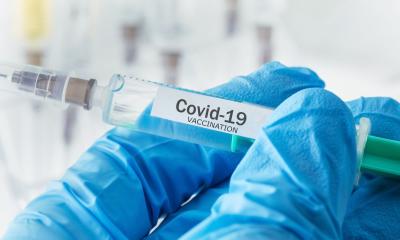News • For use across the UK
Covid-19 vaccine from Oxford University and AstraZeneca approved
The Covid-19 vaccine developed by Oxford University/AstraZeneca has been given regulatory approval by the Medicines and Healthcare products Regulatory Agency (MHRA) after meeting required safety, quality and effectiveness standards.

Image source: Unsplash/Hakan Nural
Following a rigorous, detailed scientific review by the MHRA’s expert scientists and clinicians and on the basis of the advice of its scientific, independent advisory body, the Commission on Human Medicines, the UK regulator has approved Covid-19 Vaccine AstraZeneca for use across the UK.
MHRA Chief Executive Dr June Raine said: “We are delighted to announce the good news that the Oxford University/AstraZeneca vaccine for Covid-19 is now approved for supply following a robust and thorough assessment of all the available data. A huge collaborative effort and commitment goes into these assessments which include reviewing vast amounts of data. Our staff have worked tirelessly to ensure we continue to make safe vaccines available to people across the UK. No stone is left unturned when it comes to our assessments. This approval means more people can be protected against this virus and will help save lives. This is another significant milestone in the fight against this virus. We will continue to support and work across the healthcare system to ensure that Covid-19 vaccines are rolled out safely across the UK. Protecting health and improving lives is our mission and what we strive for."
Recommended article

News • Supply and demand
Covid-19 vaccine will probably be unavailable for many until 2022
Nearly a quarter of the world’s population may not have access to a covid-19 vaccine until at least 2022, warns a study published by The BMJ. A second study estimates that 3.7 billion adults worldwide are willing to have a covid-19 vaccine, highlighting the importance of designing fair and equitable strategies to ensure that supply can meet demand, especially in low and middle income countries.
The Oxford University/AstraZeneca vaccine has been approved for use for people 18 years or older and consists of two doses, with the second dose administered 4-12 weeks after the first dose. The transportation and storage requirements for this vaccine mean that it needs to be kept at temperatures of 2°C to 8°C, which is similar to a conventional fridge for up to six months and can be administered within existing healthcare settings.
Oxford/AstraZeneca has been submitting data to the MHRA since September 2020 under the rolling review process, enabling data to be reviewed in stages, as it became available. The National Institute for Biological Standards and Control, part of the MHRA, has been and will continue doing, independent laboratory testing to ensure that every batch of the vaccine meets the expected standards of safety and quality.
As with any vaccine or medicine, Covid-19 vaccines require continuous safety monitoring by the MHRA and that the benefits in protecting people against Covid-19 must be greater than any side-effect or potential risks.
Additional updates relating to use of the Pfizer/BioNTech vaccine
The Commission on Human Medicines (CHM) has also reviewed further data for the Pfizer/BioNTech vaccine as it has become available and has recommended the following changes:
- Pregnancy and women who are breastfeeding - the vaccine should only be considered for use in pregnancy when the potential benefits outweigh any potential risks for the mother and baby. Women should discuss the benefits and risks of having the vaccine with their healthcare professional and reach a joint decision based on individual circumstances. Women who are breastfeeding can also be given the vaccine. This advice is in line with pregnancy and breastfeeding advice for the Oxford University/AstraZeneca vaccine
- Allergies - anyone with a previous history of allergic reactions to the ingredients of the vaccine should not receive it, but those with any other allergies such as a food allergy can now have the vaccine.
- Dosage interval - the advice has been updated to say that the second dose of the Pfizer vaccine should be given at least 21 days after the first dose.
Source: Medicines and Healthcare products Regulatory Agency (MHRA)
30.12.2020







